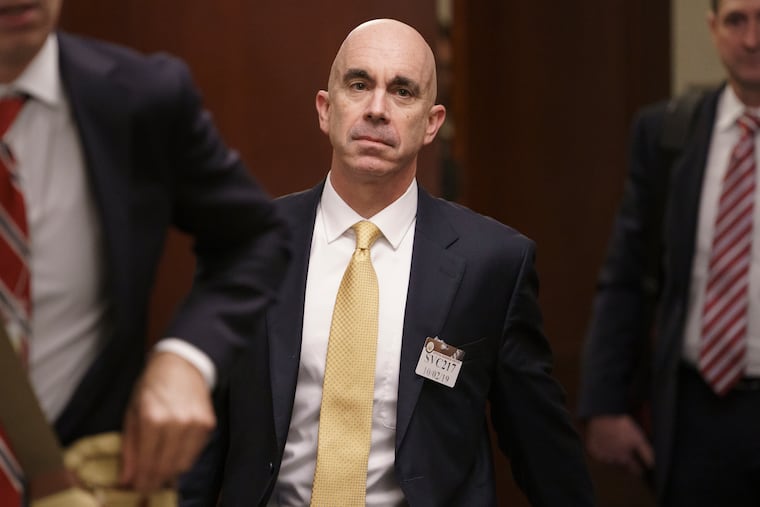Fired State Dept. watchdog says officials sought to block his review of U.S. arms deal with Saudi Arabia
The independent State Department watchdog fired by President Donald Trump says top department officials tried to bully him and dissuade his office from conducting a review of a multibillion-dollar arms sale to Saudi Arabia.

WASHINGTON — The independent State Department watchdog fired by President Donald Trump says top department officials tried to bully him and dissuade his office from conducting a review of a multibillion-dollar arms sale to Saudi Arabia.
Former Inspector General Steve Linick told Congress last week that two senior officials sought to block an inquiry into the arms deal, according to a transcript of the interview made public Wednesday by Democrats leading an investigation into his dismissal.
Linick, who had been inspector general since 2013, also said he was looking into previously reported allegations that Secretary of State Mike Pompeo and his wife may have misused government staff to run personal errands and several other matters. Trump abruptly fired him late on May 15 with what Linick said was no warning or cited cause.
“I was in a state of shock because I had no advance notice of anything like that,” Linick said, recalling his reaction when he was informed of Trump's decision. “I had no indication whatsoever.”
Shortly after the transcript was released, Pompeo called Linick a “bad actor” who had been acting inappropriately and not in the best interests of the State Department. Pompeo did not address the allegations of attempted bullying. He stood by his recommendation that Trump fire Linick, one of several inspectors general whom the president has recently dismissed.
Linick said he had opened a review of last year's $8 billion arms sale to Saudi Arabia at the request of lawmakers who claimed Pompeo had inappropriately circumvented Congress to approve the deal. Linick said the State Department’s top management officer, Brian Bulatao, and legal adviser Marik String tried to stop him.
Bulatao “said that we shouldn’t be doing the work because it was a policy matter not within the IG’s jurisdiction,” Linick said, adding that both Bulatao and String “were of the same mind” on the matter.
Linick said in the interview that he believed the Saudi review, which is continuing, was appropriate because it looked at whether proper procedures and regulations were followed. He said he had requested an interview with Pompeo on the matter but had never received a response. Linick acknowledged that Pompeo did respond in writing to questions.
“All I can say is it’s ongoing and their report is ongoing,” he said of the Saudi arms sale review.
Linick testified that he repeatedly clashed with Bulatao, a former business associate and close friend of Pompeo, over other issues as well. “I would say that sometimes the relationship was professional; at other times, he tried to bully me,” he said.
Pompeo, Bulatao and others have said Linick was dismissed in part because of inappropriate actions but also because of the alleged leak of one of his office's reports into accusations of political reprisals by Trump appointees against career State Department officials.
Linick denied his office was responsible for the leak. He said an investigation into the alleged leak by the Defense Department inspector general cleared him and his office.
Linick's office has been highly critical of such retaliation but had also criticized Democratic officials during the Obama administration, including former Secretary of State Hillary Clinton's use of a private email server.
At a State Department news conference, Pompeo questioned the validity of the leak investigation and said he and others still had questions about the origin of information that was critical of the administration's top envoy for Iran, Brian Hook.
“We have asked for a more through investigation than Mr. Linick asked for,” Pompeo said. “We’re determined to figure out how that information escaped to harm someone who works here.”
In addition to the Saudi arms deal and Pompeo’s use of government staff, Linick said that at the time of his ouster, his office had open reviews into several other matters. They included issues related to the conduct of the former chief of protocol who was dismissed last year, the curtailment of visas for former Afghan and Iraqi translators who served with U.S. forces, and a controversy over a rescinded Global Women of Courage award.